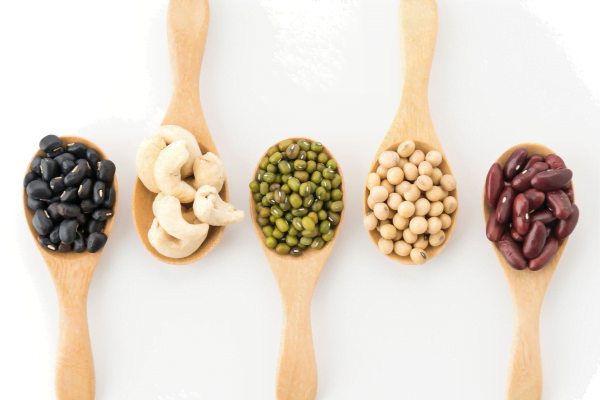Beans and diabetes. Beans are seeds of plants under the Fabaceae family. Beans, lentils or legumes are a store house of rich fiber, iron, protein, vitamins, and minerals, and therefore considered a staple part of several regional diets, such as Mexican, South Asian and Middle Eastern diets. Some popular beans are lentils, soybeans, red kidney beans, peanuts, and chickpeas.
Research shows that beans play a huge role in diabetes management. Let us find out how can benefit from beans.
How do beans help in diabetes control and management?
Beans are incredibly rich in fiber.
The high fiber content in beans is a blessing for diabetes patients. One cup of beans contains 15 grams of fiber, which is enough to manage blood sugar. Beans contain both soluble and insoluble fibers.
Soluble fiber reduces cholesterol levels, while insoluble fiber delays digestion and prevents blood sugar spikes. The high fiber content in beans also reduces overeating by keeping your stomach full for longer.
Beans are an excellent source of protein.
Besides fiber, protein can also slow the digestion process, and prevent a surge in blood glucose levels. One cup of beans contains 15 grams of protein that can improve glycemic control.
The American Diabetes Association (ADA) suggests that ½ cup of beans is a smart alternative to 1 ounce of meat. This means you can get the same amount of protein from beans if you prefer a vegetarian diet. Additionally, beans are low in calories, which is a major advantage for people with varying blood sugar levels.
Beans have a low glycemic index.
Beans have a relatively low glycemic index. The GI score of different bean varieties ranges from 10 to 40.
Here is a list of beans with their GI score:
- Chickpeas – 10
- Kidney beans – 29
- Lentils – 29
- Black beans – 30
- Canned chickpeas – 38
- Baked beans – 40
Since beans fall under the low category of GI-based edibles, they are perfect for blood sugar management.
Nutritional profile
The following are nutrients available in beans. One cup of beans contains:
- Protein – 15 grams
- Fiber – 15 grams
- Iron – 20%
- Magnesium – 21%
- Carbohydrates – 45 grams
- Phosphorus – 25%
- Folate – 74%
- Calcium – 8%
- Potassium – 21%
- Fat – 1 gram
Other nutrients present in beans include:
- Copper
- Selenium
- Vitamin B1
- Vitamin B6
- Vitamin E
- Vitamin K
- Zinc
- Manganese
Takeaway
There are different ways to add beans to your diet. Freshly boiled beans are your best choices. However, you can also try canned beans if you strain out the extra salt and preservatives from the can.:
- Include beans as a side.
- Mix beans in soups and salads.
- If you are fond of Mexican food, use beans in burritos.
- Try hummus (a seasoned chickpea paste) as a condiment or dip.
Doctor’s Recommendation
While beans are a good source of stable, slow-release carbohydrates, they are less optimal compared to a ketogenic diet, as they can introduce variability in daily insulin dosing. However, consuming beans in the evening can help maintain stable glucose levels overnight, which is beneficial for individuals prone to nocturnal hypoglycemia.
It is also important to note that using digestive enzymes to enhance gastrointestinal tolerance can significantly increase sugar absorption in the intestines. Therefore, diabetic individuals are advised to avoid using these digestive enzymes.



